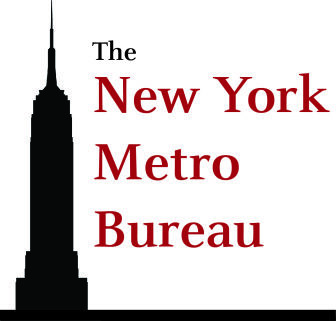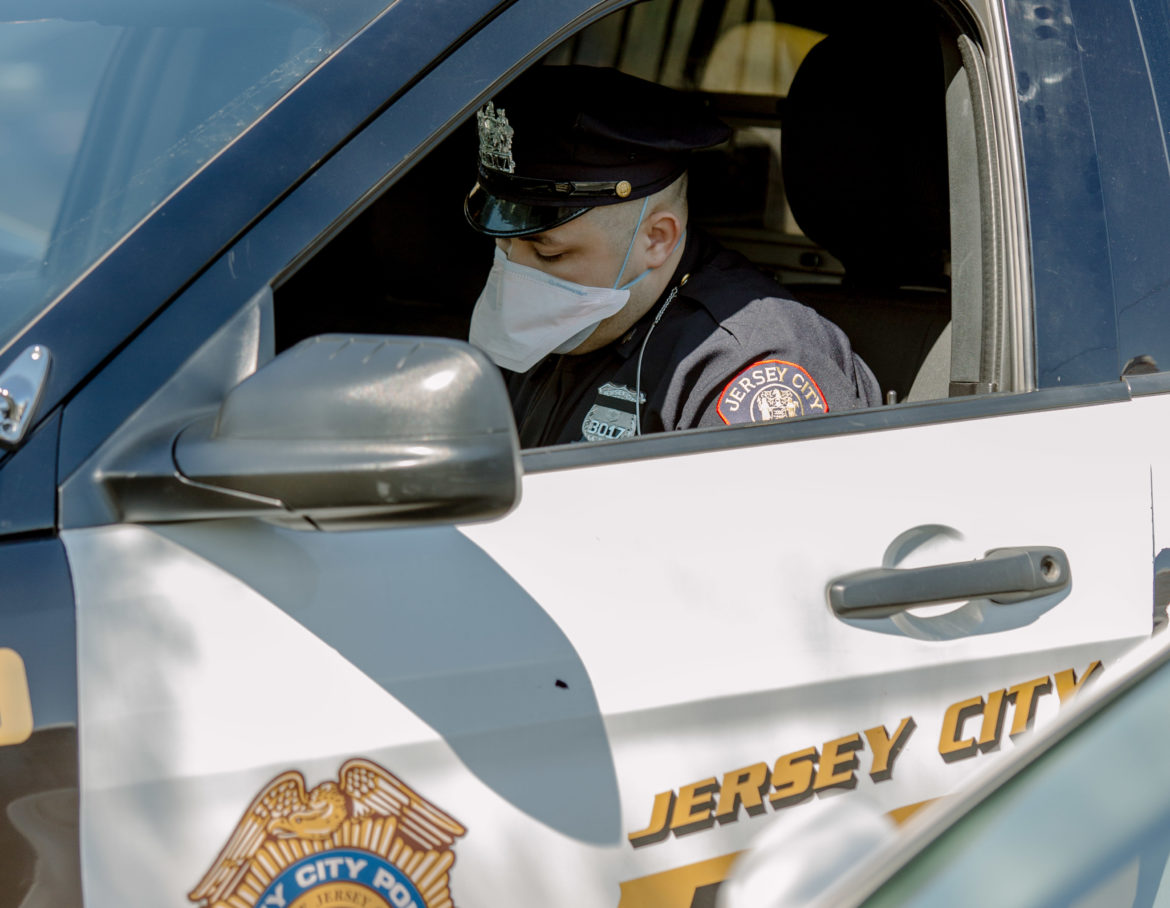As one of the first states to confront the ghastly reality of the COVID-19 pandemic, New Jersey prepared for what many saw as inevitable: an outbreak in its jails and prisons.
In the weeks surrounding Gov. Phil Murphy’s declaration of emergency on March 9, the state enacted a number of measures to prevent the virus from finding its way into some of its most crowded — and vulnerable — facilities.
 Enhanced cleaning procedures, screening of employees at the door, canceled visits by family members and nonessential workers soon became the new norm. Administrators of juvenile facilities across the state felt they were ready to contain possible clusters of infections.
Enhanced cleaning procedures, screening of employees at the door, canceled visits by family members and nonessential workers soon became the new norm. Administrators of juvenile facilities across the state felt they were ready to contain possible clusters of infections.
But when a COVID-19 outbreak exploded at the New Jersey Training School (NJTS) in recent weeks, that drill-type scenario turned into a reality. A sense of fear and insecurity began crippling the workforce operating juvenile facilities, threatening the safety of employees and inmates alike. It currently houses approximately 200 young men.
At least 32 employees of the Juvenile Justice Commission, the agency running the state’s youth detention centers and residential community homes, have tested positive for the disease. Fourteen of the 32 work at the NJTS. A dozen additional employees have been placed in quarantine, according to official sources.
“There’s a heightened sense of anxiety among the staff,” said William Sullivan, the head of New Jersey State Policemen’s Benevolent Association Local 105, which represents about 5,600 of the state’s correctional officers.
“There is no social distancing when you work in corrections,” he said. “There’s not enough room. The tiers are small, the cells are close together, so we have a significant higher likelihood of exposure. The residents exposing us, and us exposing them.”
A correctional officer at Essex County’s jail in Newark tested positive for coronavirus days after test results for a teacher at Juvenile Medium Security Facility (JMSF) in Bordentown, the second-largest in the state with a 118 bed-capacity, also came back positive.
Union wants more protections
Documents show the state correctional officers union sent letters to the state’s Department of Corrections (NJDOC) and the JJC demanding “hazard pay” and the setting up of on-site testing booths for the officers.
Lisa Coryell, a spokeswoman for the JJC, said the agency took steps to expand its safety measures. Social distancing rules were put in place and temperature screening for all staff entering its facilities. It also replaced in-person schooling activities with remote ones and suspended all visits considered nonessential.
“The health and safety of youth and staff are the Juvenile Justice Commission’s (JJC’s) paramount priorities,” Coryell said. “In each instance of a staff member testing positive, the JJC implemented enhanced protocols related to social distancing, daily temperature screening of residents, and sanitization to help mitigate the spread of the disease.”
An officer at the JMSF hung up when asked what the facility is doing to contain a likely outbreak from the teacher’s infection.
After another call, the officer directed all questions to the Juvenile Justice Commission’s human resources office.
“We can’t speak about it,” the officer snapped.
Since those calls, at least five more employees at JMSF have contracted the virus.
Administrators at other facilities gave similar answers and directed all questions to the JJC’s public information officer.
Youth who are currently serving time in state prisons with adults or who are housed in county jails awaiting adjudication are more exposed to the threat of contagion because they share the space with larger and more diverse populations.
As of Wednesday night, 29 inmates had died of consequences of COVID-19 infections. At least 162 inmates had tested positive for the illness and 27 more were awaiting test results. The number of confirmed sick employees was 518, according to the department’s official information.
By comparison, the number of inmates in JJC custody who contracted the virus is much lower, 21 — all at the NJTS — with no reported deaths.
Adult inmates getting released, not juveniles
Worried by the unprecedented health crisis and the prospect of a contagion spiraling out of control, civil rights groups and justice advocates have called for the release of inmates en masse.
The American Civil Liberties Union of New Jersey asked the state Supreme Court for a mass release of adult inmates serving short sentences in county jails across the state at the end of March. Since then, the court agreed to release 697 adults.
The public defender’s office, prosecutors and courts are working on identifying defendants in pretrial detention — by virtue of the Constitution, not guilty people — for possible release. Between March 9 and 30, the adult population in county jails was down 2,000 people, said Alexander Shalom, a senior attorney at the New Jersey chapter of the ACLU.
Something comparable has yet to happen on the juvenile side, however. Rather than a mass release, the juvenile justice system is managing the release of adjudicated youths on a case-by-case basis.
“There have been cases where public defenders have been able to work with the courts and prosecutors to recall motions where incarcerated youths are being resentenced to nonincarcerated terms,” Shalom said.
While COVID-19 hospitalizations for all state residents have been decreasing steadily since reaching a peak on April 14, the pandemic is testing the resilience of a state that hasn’t seen a major disaster since Hurricane Sandy. Daily updates published by the state government offer a grim look at an unprecedented health crisis sweeping the state's most populous counties.
As of Wednesday evening, there were over 116,000 confirmed cases and nearly 6,800 deaths recorded, with the brunt of the infections clustering in the counties bordering New York state. Bergen County, the hardest-hit in the state, had reported nearly 15,446 coronavirus cases and over 1,057 deaths.
But Michael Wildes, the mayor of Englewood, one of the county’s towns and part of the sprawling suburbs of New York City, says local hospitals can handle the influx.
Now that social gatherings are banned and there’s a shelter in place order, there’s been a shift in priorities by local law enforcement.
“The police are trying to arrest only people who commit serious crimes,” Wildes said. “My officers have been ordered to disperse people who don’t follow social distancing rules. It’s very important that we exercise humanitarianism and uphold the law at the same time.”
Larger cities such as Jersey City are trying to avoid arresting too many people so as not to worsen clusters of infections widely reported at prisons and jails across the state.
“We’re ensuring social distancing as much as we can,” said James Shea, Jersey City’s director of public safety. “Of course, if people fight us we have to do what we have to do to get them under arrest."
Shea, brother of New York Police Department Commissioner Dermott Shea, said the handling of juveniles under arrest has changed to adapt to the COVID-19 federal guidelines.
“Before this came in, we weren’t concerned about this,” Shea said. “We didn’t have a virus that we are transmitting and it’s contagious like this, so maybe if we arrested three juveniles together we would have put them all in the same cell for ease of processing. Now, obviously, we wouldn’t do that. We would move them to three separate holding cells.”
So far the city has “plenty of room” to handle the arrest process of suspects, both adult and juvenile, he said.
Since the COVID-19 epidemic hit Jersey City, police calls have declined 15 to 20%, and as a result, arrests are down too. Something similar is happening in the surrounding jurisdictions, Shea said. The NYPD also reported an overall drop in crime of 25%, according to the department’s statistics.
“People are staying home. All of our bars and clubs are closed,” Shea said. “Less social interaction leads to less potential for negative interaction between people.”
